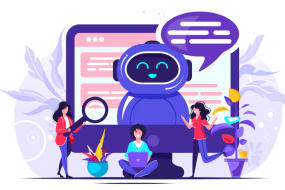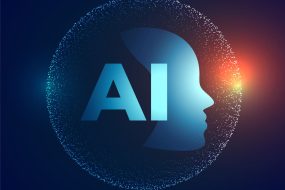
In recent years, the introduction of artificial intelligence (AI) has revolutionized the way businesses interact with their customers. One of the most notable advancements is the use of AI-powered chatbots in customer support. By leveraging AI technology, companies are able to provide efficient and personalized support to their customers, leading to improved customer satisfaction and loyalty.
According to a survey by Gartner, by 2022, 70% of customer interactions will involve emerging technologies such as machine-learning applications, chatbots, and mobile messaging. This indicates the growing significance of AI-powered chatbots in reshaping customer support processes.
AI chatbots offer several benefits that have the potential to transform the customer support landscape. Firstly, they provide instant responses to customer queries, reducing the need for customers to wait in long queues or for extended periods to get assistance. Moreover, they can handle multiple customer inquiries simultaneously, enhancing the efficiency of support teams.
Furthermore, chatbots can also personalize the customer experience by utilizing data-driven insights to understand customer preferences and behavior. This level of personalization can significantly improve customer engagement and satisfaction.
From a cost perspective, AI chatbots can help organizations reduce operational expenses associated with customer support. McKinsey & Company reports that businesses can achieve cost savings of up to 29% in customer service operations through the implementation of AI technologies.
It’s important to acknowledge that while AI chatbots offer significant advantages, there are also potential challenges and concerns. One concern is the potential impact on human jobs. As organizations increasingly adopt AI chatbots, there may be a reduction in the need for human support agents, leading to job displacement.
Another consideration is the importance of ensuring that AI chatbots are equipped to handle complex and sensitive customer issues. While they excel in managing routine queries, there are instances where human intervention and empathy are crucial. Therefore, striking the right balance between AI and human interaction is paramount.
To address these challenges, companies need to approach the implementation of AI chatbots thoughtfully. For instance, organizations can focus on upskilling and reskilling their workforce to take on more specialized roles that complement AI technologies rather than compete with them. They can also establish clear guidelines for when human intervention is necessary to manage customer issues effectively.
In conclusion, the integration of AI chatbots is undeniably transforming the customer support landscape. With the potential to enhance efficiency, reduce costs, and improve the customer experience, AI chatbots are poised to play a pivotal role in the future of customer support.
Sources:
- Gartner survey – https://www.gartner.com/en/newsroom/press-releases/2019-06-18-gartner-survey-shows-37-percent-of-organizations-have-adopted-ai-in-their-enterprise-operations
- McKinsey & Company report – https://www.mckinsey.com/business-functions/mckinsey-digital/our-insights/the-next-acronym-you-need-to-know-about-conversational-ai













